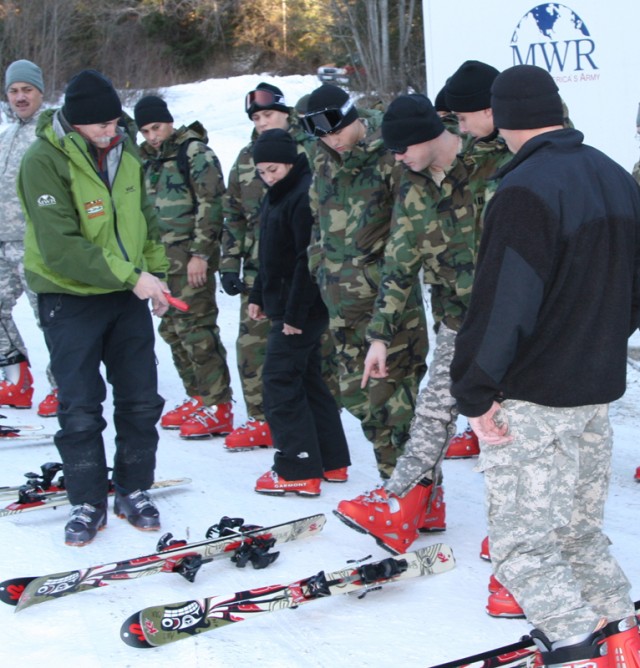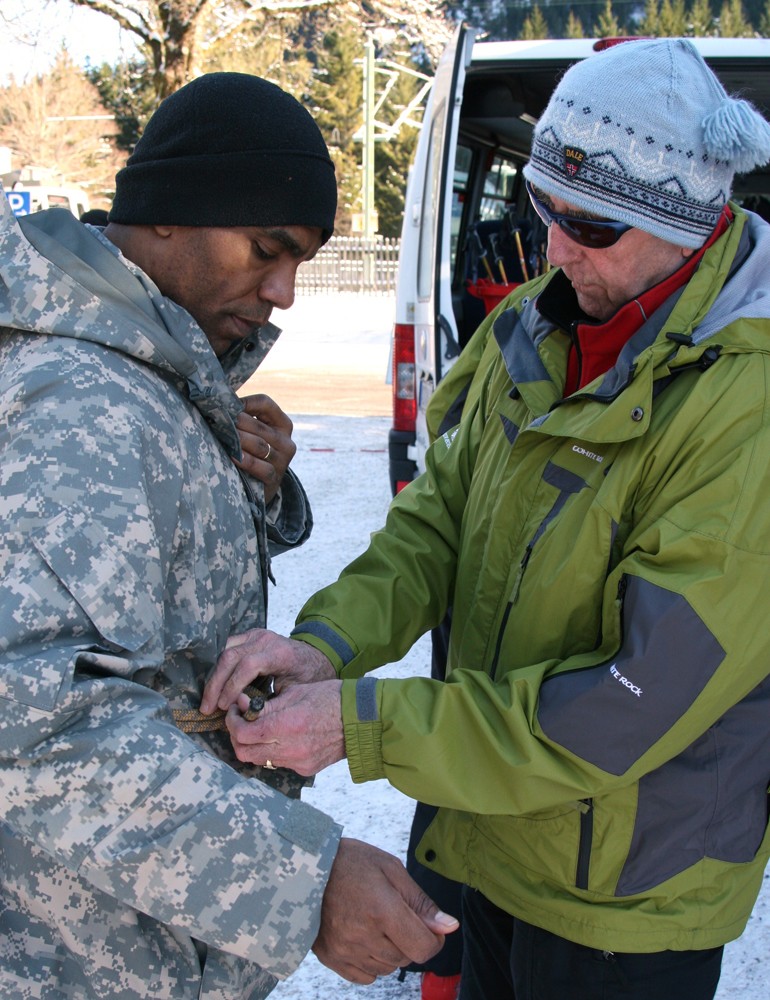HEIDELBERG, Germany - The first of approximately 8,000 Soldiers began cycling through Installation Management Command-Europe's high-adventure, adrenaline-pumping Warrior Adventure Quest recreation program earlier this month.
All of the U.S. Army Europe troops recently returned from deployments with the 2nd Striker Cavalry Regiment, the 12th Combat Aviation Brigade and the 1st Armored Division.
"This amazing program combines leadership training with lifetime leisure-skill development by exposing Soldiers to activities such as paintballing, ski touring, snowboarding, ski rappelling, rock climbing, mountain biking, High Ropes Courses, canoeing and even bungee jumping," said Kelly Nebel, Outdoor Recreation Program manager for IMCOM-Europe.
Small, platoon-sized groups of Soldiers, based in Germany with Ansbach's 12th CAB and Vilseck's 2nd SCR, began participating in intensive, one-day activities at various German sites as part of an initiative designed to help troops readapt to a "new normal" after returning from combat duty. Members of Wiesbaden's 1AD will begin cycling through the program in February.
Grafenwoehr is hosting the largest number of participants in the overall servicewide program.
WAQ signifies the Army's full commitment to helping Soldiers effectively transition from a combat to home-station environment during the 90-day period after redeploying and completing block leave. It does so by combining existing outdoor recreation activities with Battlemind, the Army's psychological resiliency building program. As part of the Battlemind blueprint, Soldiers hold group discussions after each outing, sharing their thoughts on the experience as well as being home.
During the program, participants will be exposed to one of a number of high-adventure activities depending on location and time of year.
"Plus it aims to spark a long-term interest in Soldiers to pursue lifelong, positive outlets for their energies and to relieve stress and anxiety," said Nebel. "By doing so, we hope to discourage Soldiers from engaging in risky choices - which some do in an effort to amplify adrenaline levels they may have grown accustomed to in the combat environment - during their everyday lives."
The Army, through a partnership between the Family and Morale, Welfare and Recreation Command and the Office of the Surgeon General, tested WAQ with three pilot programs in 2008. Units participating in the pilot included the 2nd Battalion, 503rd Infantry, in Vicenza, Italy; Virginia National Guard soldiers of C Company, 3rd Battalion, 11th Brigade Combat Team from Manassas and Leesburg, Va.; and soldiers of the 4th Battalion, 2nd Stryker Brigade Combat Team, at Fort Lewis, Wash.




Social Sharing